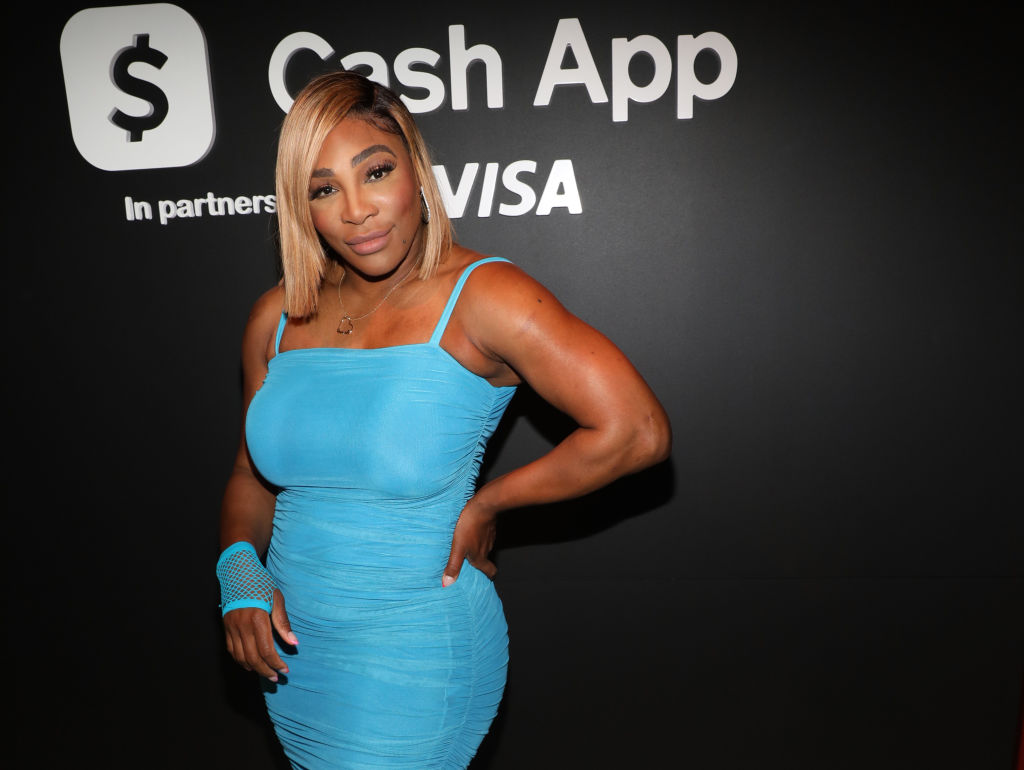Blurred lines: Athlete investors on rise as brands embrace new ways to partner with sport stars

When Anthony Joshua and Dazn announced a new partnership last week, one of the most eye-catching aspects of the deal was that it involved the British heavyweight boxer acquiring a stake in the sports streaming platform.
It was just the latest example of a prominent athlete cultivating a business portfolio to complement their sporting career.
From passion projects such as vegan footballer Chris Smalling’s investment into health foods to Andy Murray’s backing of dozens of start-ups and the multi-million-dollar funds established by US sports stars such as LeBron James and Serena Wiliams, an entrepreneurial sideline of some kind has become almost as ubiquitous among big-name players as oversized headphones and flashy watches.
While some of these examples involve sportspeople investing their own money or even setting up their own business, they often involve some degree of endorsement too, as in the case of Joshua and Dazn.
And in many cases the endorsement is in exchange for equity or discounted shares, particularly in start-ups or early-stage companies, blurring the lines between investment and sponsorship. It is not clear if this was the case with Joshua and Dazn.
“Gone are the days when you had to pay an athlete an inordinate amount of money to be a brand ambassador,” says Ben Peppi, head of sports services at law firm JMW. “There are now new and creative ways to look at these deals.”
In a traditional endorsement deal, a brand pays a sportsperson a fee for a suite of rights including their IP, likeness and voice. The deal will usually include one opportunity to shoot content with the athlete, and sometimes competitions, personal appearances and an agreed number of posts on social media.
The investor-ambassador model, on the other hand, has “no set rulebook, just negotiations”, says Ben Smith, a partner in wealth management service FLM. “You’d expect any athlete who has invested in an early-stage company where they’re expected to be a brand ambassador to get a big discount on the share price.”
Athlete investors ‘win-win’ for both parties
When done right, athlete investment deals are “a big win-win” for both parties, adds Smith, who helps sportspeople manage their finances.
Brands like the reach that athletes, who are increasingly content creators in their own right, offer. They can prove more authentic endorsers if, as in the case of golfer Rory McIlroy and fitness wearable Whoop, they use the product as well as taking equity.
For sportspeople, financial planning with one eye on their post-playing days is a key factor but not the only one. It is now easier to invest, from stocks to start-ups, than ever, while top athletes, notably in football, simply have more money to play with than ever before.
The allure of entrepreneurialism itself, shaped by US stars such as LeBron and Serena as well as Shaquille O’Neal and Michael Jordan, is a major influence. For some, so too is social media content purporting to show how to turn their fortune into an even bigger one, says Smith.
“Athletes get FOMO, a fear of missing out on this stuff, and they have the capital resource to make those decisions pretty quickly, even if it’s not always recommended,” says Peppi.

A huge factor that should not be overlooked in a number of investments, however, is the positive tax implications.
Incentives such as the Enterprise Investment Scheme offer tax relief of 30 per cent in investments in companies of a certain size, usually successful start-ups that need funding for their next stage of growth. This only applies if an athlete has paid for shares, as opposed to being given them as part of an endorsement, although it is possible for them to be paid by the brand and then buy equity.
“Athletes paying millions in income tax can invest up to £1m in these smaller companies and get a £300,000 kickback from the government,” says Smith. Adds Peppi: “The EIS scheme has been hugely important for any high net worth individual investing in start-ups and athletes are in that category.”
There are pitfalls to sportspeople investing, however. First off, most start-ups fail, so backing young companies is a significant gamble. They are also a long-term play; it is far more difficult to take capital out of a small private company than, say, Apple.
And there are reputational risks on both sides: for the athlete if the business goes south and leaves customers out of pocket, and for the brand if their investor-ambassador does something on or off-field to taint them.
Traditional sponsorship deals with sportswear brands and financial organisations are far from dead, says Peppi, but the lines between endorsements and investments look set to continue to blur.
“I’m hugely positive about the relationship between the two, and I think founders are becoming more aware that athletes as investors are adding significant value,” he adds. Says Smith: “It will definitely increase.”
The next frontier for athletes in the UK and Europe is the biggest names partnering with venture capital to create their own funds, as Williams has for Serena Ventures and James with SpringHill.
“It’s far more developed in the US,” says Peppi. “It’s a golden triangle: high-quality early-stage business, institutional capital and athlete. When you connect the three you create something very powerful.”
